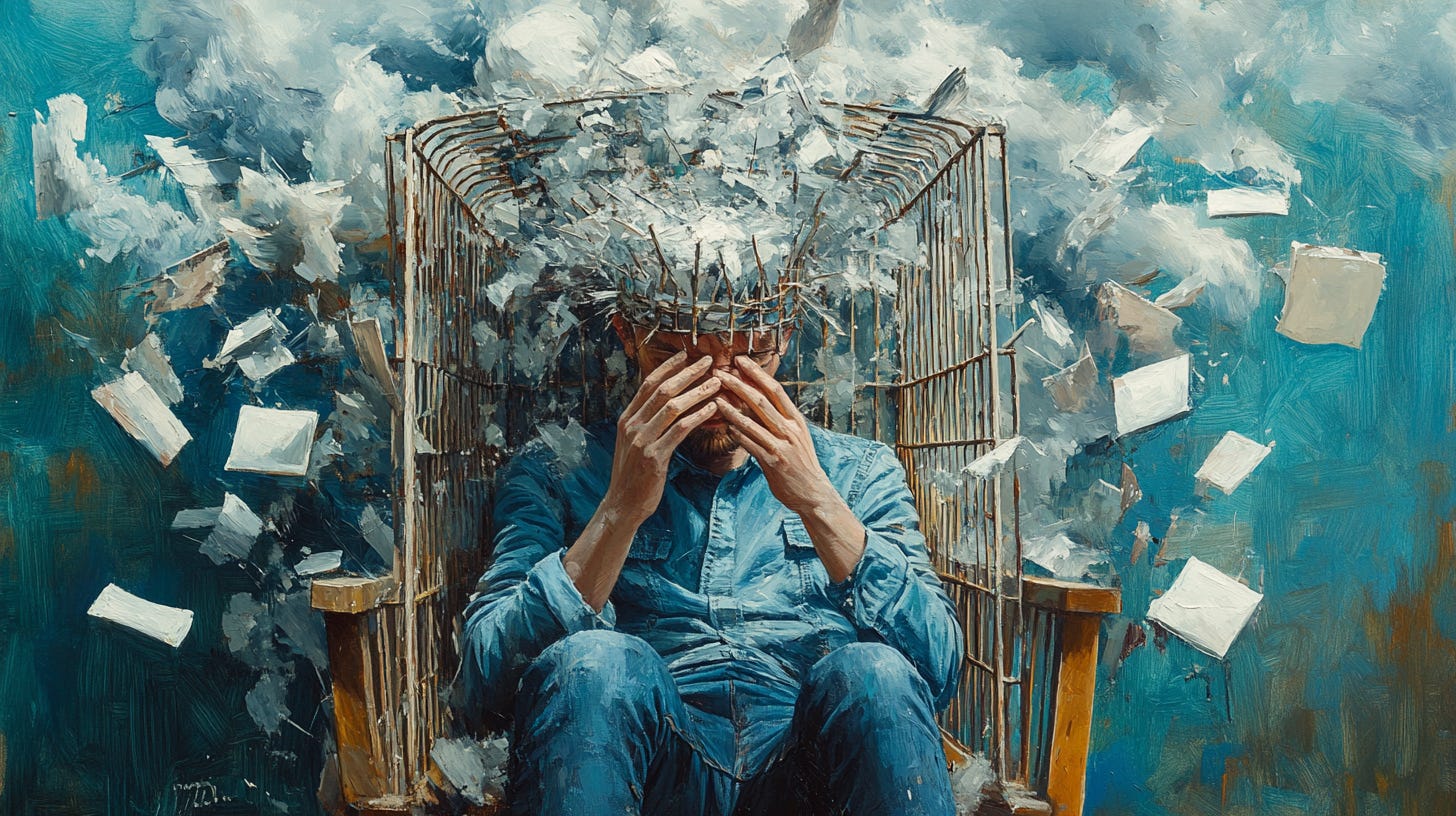The Victim Mindset Trap
How to break free from the stories that keep you stuck and reclaim control over your life
Have you ever noticed how some people seem to attract drama wherever they go? How certain individuals always have someone to blame for their problems? How they can turn any situation into evidence of how unfairly life treats them?
The story of Oprah Winfrey reveals something about the difference between being a victim and having a victim mindset.
Born into extreme poverty in rural Mississippi, Oprah faced circumstances that would break most people. Her teenage mother abandoned her to live with her grandmother, who was so poor they wore potato sack dresses. She was sexually abused by multiple family members starting at age nine. She became pregnant at 14, losing the baby in infancy. She was shuttled between relatives who didn't want her.
By any measure, Oprah was a victim of horrific circumstances completely beyond her control.
But despite experiencing genuine victimization, Oprah never adopted a victim mindset. Even as a teenager, she focused intensely on what she could control. She threw herself into her education, excelled in speech and drama, and won a scholarship to Tennessee State University. When local radio stations heard her speak, she didn't wait for opportunities to come to her. She walked into stations and asked for work.
Every setback became a setup for something better. Getting fired from her first television job in Baltimore could have confirmed a story about how the world was against her. Instead, she used it as motivation to improve and eventually landed in Chicago, where she transformed a failing morning show into what became The Oprah Winfrey Show.
Experiencing terrible things doesn't automatically create a victim mindset. The mindset isn't determined by what happens to you, but by how you think about what happens to you. This distinction matters because it reveals where your power actually lies.
The victim mindset is seductive because it offers emotional payoffs. It absolves us of responsibility, garners sympathy, and provides an explanation for why our lives aren't working. But these temporary benefits come at an enormous cost: they rob us of our power to change our circumstances.
Most people don't realize they've fallen into this trap. The victim mindset disguises itself as realistic thinking, justified anger, or simply "telling the truth about how unfair things are." But underneath these justifications lies a deep helplessness that keeps us stuck in patterns that no longer serve us.
What if you could learn to spot these patterns in yourself? What if you could transform the very experiences that seem to disempower you into sources of strength and wisdom?
In this post, you'll discover:
The three victim stories that keep us trapped and their devastating real-world consequences
The neuroscience behind why our brains default to helplessness
How victim thinking destroys relationships without you realizing it
Why our obsession with fairness becomes paralyzing
The "agency shift" from "Why me?" to "What now?" that changes everything
Practical strategies for handling difficult people, systemic barriers, and personal setbacks
This shift has allowed me to transform some of my deepest wounds into sources of strength, move past resentments that were poisoning my relationships, and find peace with circumstances I can't control while taking action on what I can.
Over 100,000 people now read Stoic Wisdoms, with hundreds of paying subscribers applying these lessons daily. If you haven’t upgraded yet, you can unlock this full post and all Premium content including the Confidence series & Stoic Reflections.


